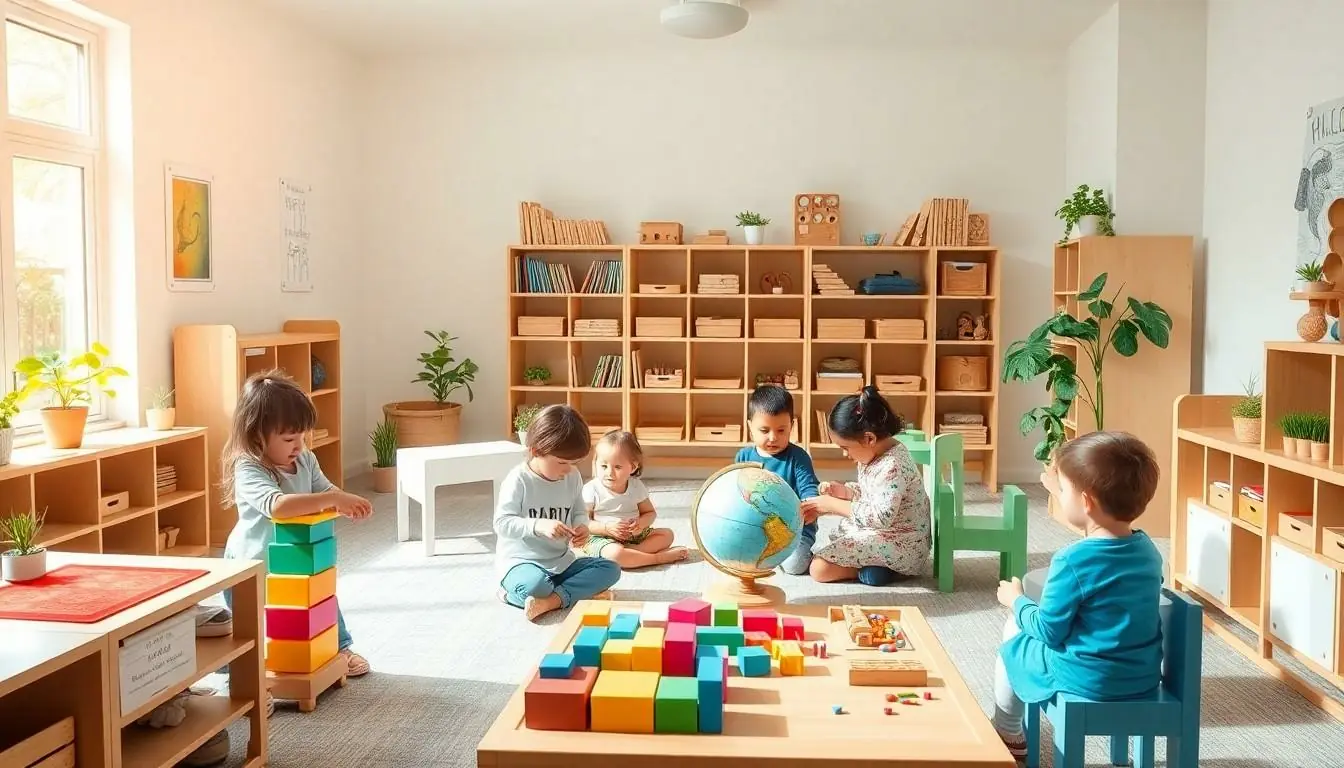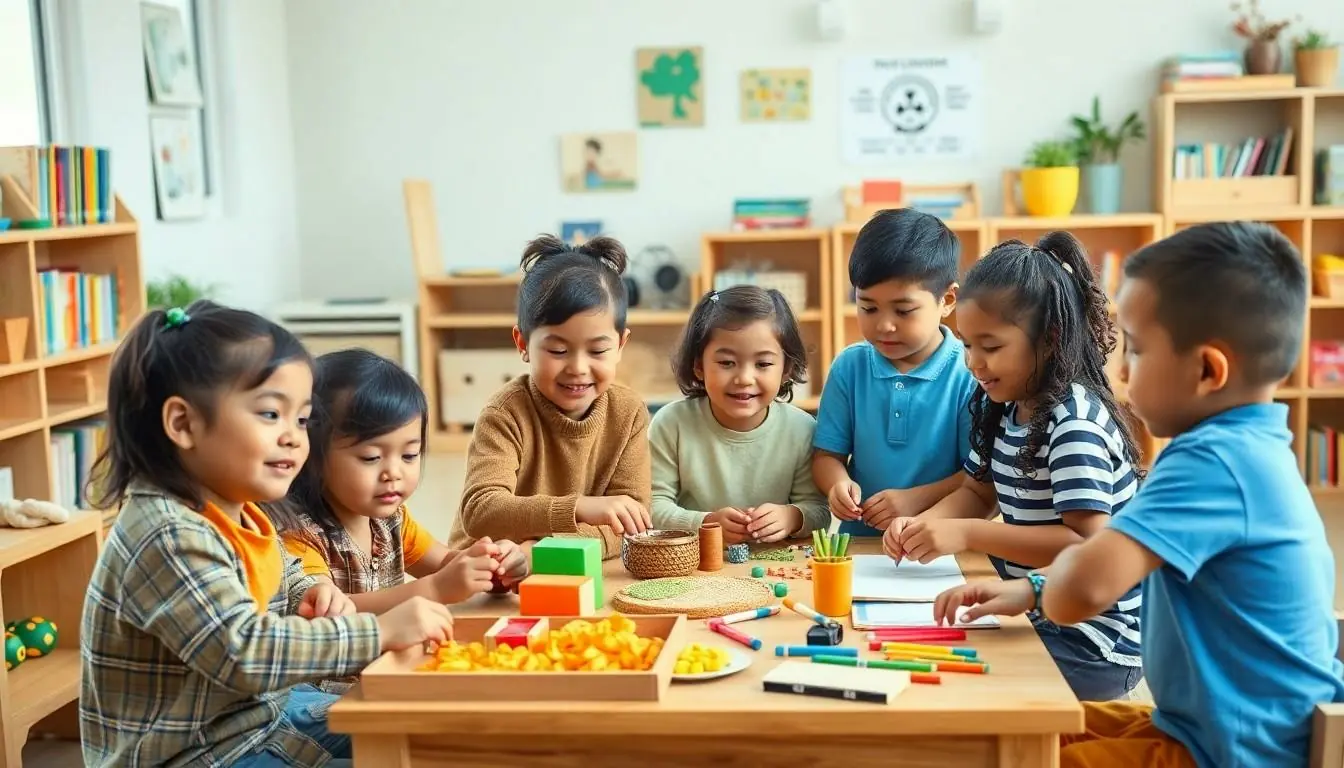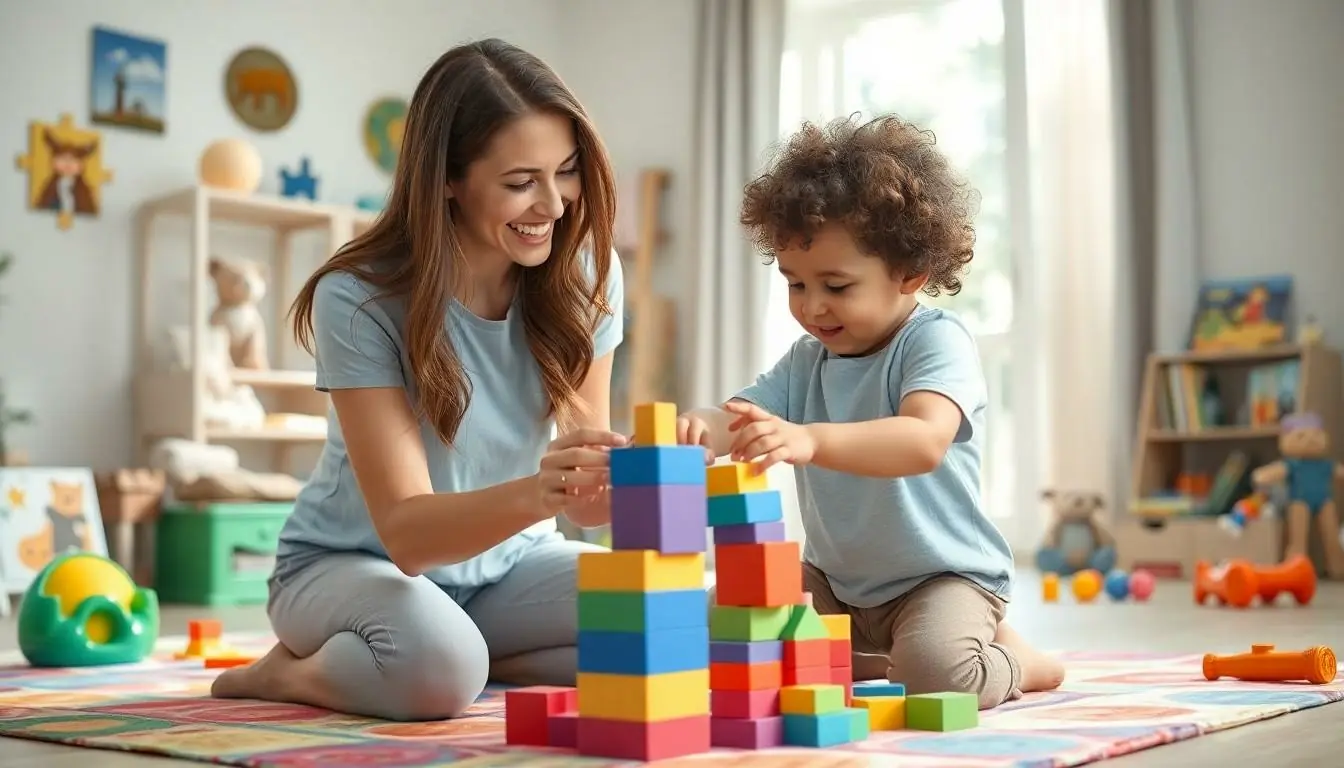Looking for an educational approach that treats children as capable individuals rather than empty vessels to fill? DCS Montessori offers a refreshing alternative to traditional schooling where young minds flourish through hands-on discovery and self-directed learning.
At DCS Montessori children don’t just sit at desks – they explore thoughtfully prepared environments that spark curiosity and independence. Through carefully curated materials and gentle guidance from expert teachers they develop crucial life skills while mastering academic concepts at their own pace. This innovative method has helped countless students build confidence self-discipline and a genuine love of learning that lasts a lifetime.
Table of Contents
ToggleWhat Is DCS Montessori Education
DCS Montessori education integrates academic excellence with individualized learning experiences in a carefully structured environment. This educational approach focuses on developing the whole child through hands-on exploration and self-directed discovery.
Core Principles and Philosophy
The DCS Montessori philosophy centers on respecting each child’s unique developmental journey. Children work at their own pace using specialized materials that isolate specific concepts. The curriculum incorporates five key elements:
- Practical Life activities develop motor skills through daily tasks like pouring water or arranging flowers
- Sensorial materials enhance perception through exploration of size, color, texture, sound
- Language instruction progresses from concrete phonics to advanced reading comprehension
- Mathematics concepts build from counting objects to complex problem-solving
- Cultural studies integrate geography, science, art and music
The Prepared Environment
The DCS Montessori classroom creates an ordered space designed for independent learning. Key environmental elements include:
- Child-sized furniture enabling comfortable access to materials
- Open shelving displaying activities at eye level
- Distinct learning zones for different subject areas
- Natural lighting supplemented by soft artificial illumination
- Living plants bringing nature indoors
- Limited wall decorations maintaining focus on learning materials
- Progress from simple to complex concepts
- Include built-in error control mechanisms
- Allow for repetition and mastery
- Support both individual and small group work
Academic Programs at DCS Montessori
DCS Montessori offers comprehensive academic programs tailored to specific developmental stages. Each program incorporates Montessori principles while meeting state educational standards through hands-on learning experiences.
Primary Program (Ages 3-6)
The Primary Program creates a foundation for lifelong learning through structured exploration activities. Children engage with Montessori materials that develop sensory awareness, language skills, mathematical concepts, practical life exercises, and cultural understanding. The classroom environment includes multi-age groupings where older students mentor younger peers, fostering leadership skills and social development. Students work with materials like the Pink Tower for dimension recognition, Sandpaper Letters for phonetic awareness, and Golden Bead materials for mathematical operations.
Elementary Program (Ages 6-12)
Elementary students explore an integrated curriculum connecting mathematics, language arts, sciences, and humanities. The program emphasizes research projects, collaborative work, and advanced Montessori materials for complex concepts. Students participate in weekly field trips, conduct scientific experiments, and create detailed cultural studies. The curriculum incorporates technology through coding exercises, digital presentations, and research tools. Learning activities include botany classification, geometric demonstrations, advanced grammar work, and cultural geography studies using specialized maps and artifacts.
The DCS Montessori Teaching Method
The DCS Montessori teaching method incorporates specialized techniques designed to foster independence, critical thinking and natural development in children. This approach emphasizes hands-on exploration, self-directed learning and individualized instruction within a carefully prepared environment.
Mixed-Age Classrooms
DCS Montessori classrooms group children in three-year age spans to create dynamic learning communities. Older students serve as mentors, reinforcing their knowledge by teaching younger peers. Younger children gain inspiration from observing advanced work while developing social skills through mixed-age interactions. The classroom structure enables children to progress at their own pace without artificial grade-level constraints. Teachers guide students individually, presenting new materials when each child demonstrates readiness. This multi-age setting cultivates leadership, cooperation and respect among students of different developmental stages.
Hands-On Learning Materials
DCS Montessori classrooms feature scientifically designed materials that isolate specific concepts and skills. The materials include graduated cylinder blocks for size discrimination, binomial cubes for algebraic concepts and metal insets for writing preparation. Each item contains built-in control of error features allowing children to identify and correct mistakes independently. Students progress from concrete to abstract understanding by manipulating these specialized tools. The materials remain consistently arranged on accessible shelves, enabling children to select work based on their interests and developmental needs. Teachers demonstrate proper material use during individual or small group lessons, then allow students to explore and practice independently.
Student Development and Assessment
DCS Montessori’s assessment approach focuses on tracking individual student progress through observation-based evaluations rather than traditional grading systems. Teachers document each child’s development across academic subjects social skills emotional growth while maintaining detailed records of their achievements.
Individual Learning Pace
Students at DCS Montessori progress through the curriculum at their own natural rhythm based on mastery of concepts rather than age-based benchmarks. Teachers observe each child’s readiness before introducing new materials ensuring a solid foundation for advanced learning. The three-year age grouping enables children to move forward in subjects where they excel while taking additional time in areas requiring more practice. Students demonstrate understanding through hands-on work with Montessori materials presentations to classmates research projects. This individualized approach allows children to develop confidence independence as they master skills at their optimal pace.
Progress Monitoring
Teachers maintain comprehensive digital portfolios documenting student achievements across academic social emotional domains. Daily observations track:
| Assessment Area | Documentation Method |
|---|---|
| Academic Skills | Material mastery records |
| Social Development | Interaction observations |
| Work Habits | Daily activity logs |
| Project Completion | Digital portfolios |
| Skill Acquisition | Progress checklists |
Parents receive detailed progress reports three times annually highlighting their child’s development milestones reached materials mastered new skills acquired. Regular parent-teacher conferences provide opportunities to discuss student growth set collaborative goals review portfolio documentation. This systematic monitoring ensures each child’s educational journey aligns with Montessori principles state standards.
Parent Involvement and Community
DCS Montessori emphasizes active parent participation in the educational journey through structured programs events. The school creates multiple opportunities for families to engage meaningfully in their children’s learning experience.
Parent Education Programs
DCS Montessori offers comprehensive parent education workshops throughout the academic year. Monthly seminars explore Montessori philosophy fundamentals materials child development stages. Parents learn practical techniques for implementing Montessori principles at home through hands-on demonstrations expert presentations. The school provides specialized workshops for different age groups including toddler primary elementary programs. Online resources include video tutorials guides reference materials for continuous learning. Regular parent observation sessions allow families to witness the Montessori method in action gaining insights into their child’s classroom experience.
School Events and Activities
The school calendar features enriching community gatherings that connect families staff students. Cultural celebrations showcase student projects performances artwork from various curriculum areas. Parent volunteers contribute to classroom activities field trips special events. Annual traditions include:
| Event | Time of Year | Focus Area |
|---|---|---|
| Fall Festival | October | Cultural Arts |
| Science Fair | February | STEM Projects |
| International Day | April | Global Studies |
| Spring Concert | May | Performing Arts |
Morning coffee sessions enable informal discussions between parents teachers about educational topics. Community service projects engage families in local outreach initiatives teaching social responsibility through action.
Conclusion
DCS Montessori stands as a testament to the power of child-centered education where every student thrives through individualized learning experiences. The school’s commitment to authentic Montessori principles creates an environment that nurtures academic excellence social development and lifelong learning skills.
Through its carefully designed programs specialized materials and dedicated teachers DCS Montessori empowers children to become confident independent learners. The school’s comprehensive approach to education paired with strong parent partnerships ensures each child reaches their full potential at their own pace.
As an educational institution that values both individual growth and community engagement DCS Montessori continues to shape the future of education by fostering curious minds capable problem solvers and compassionate citizens.




